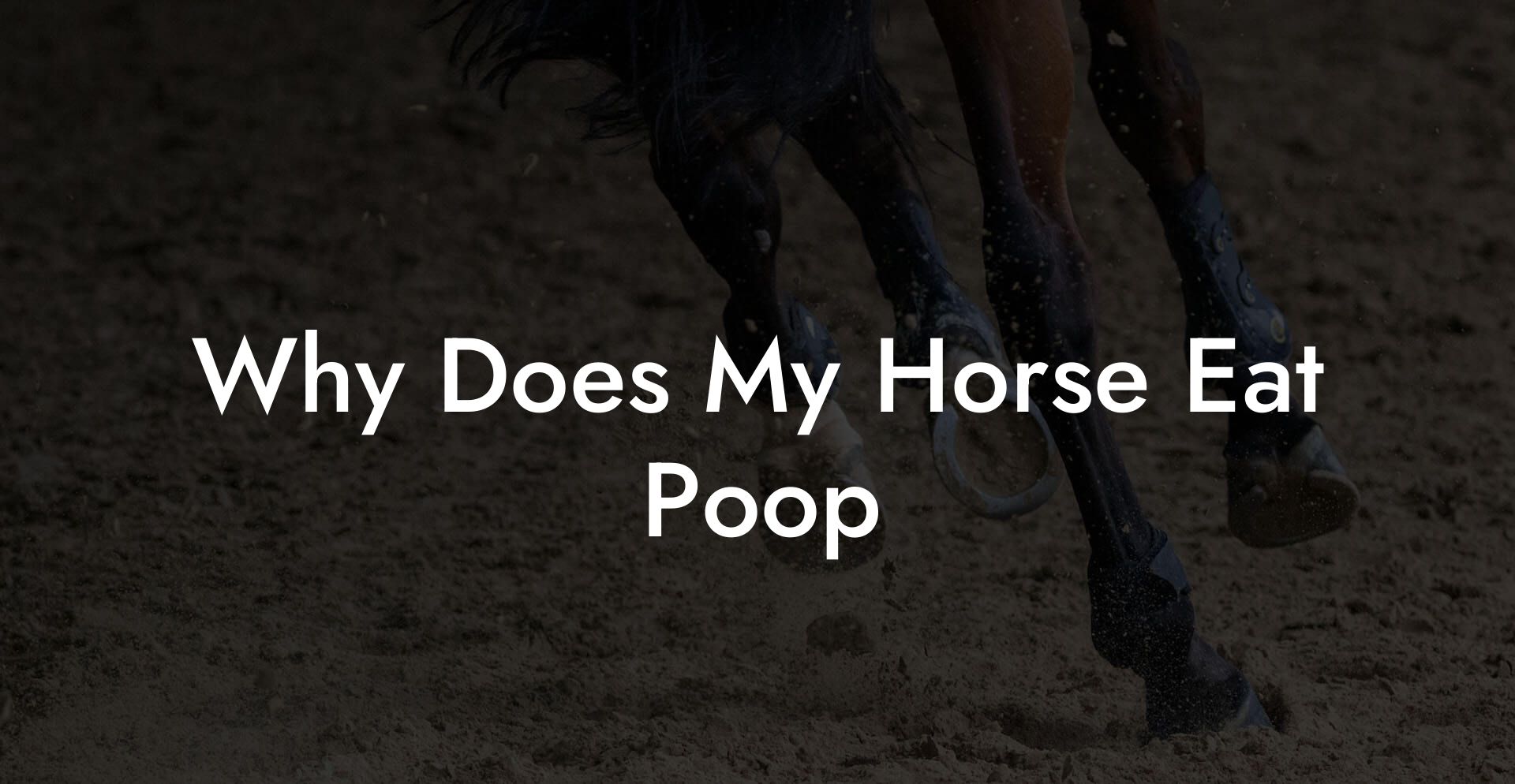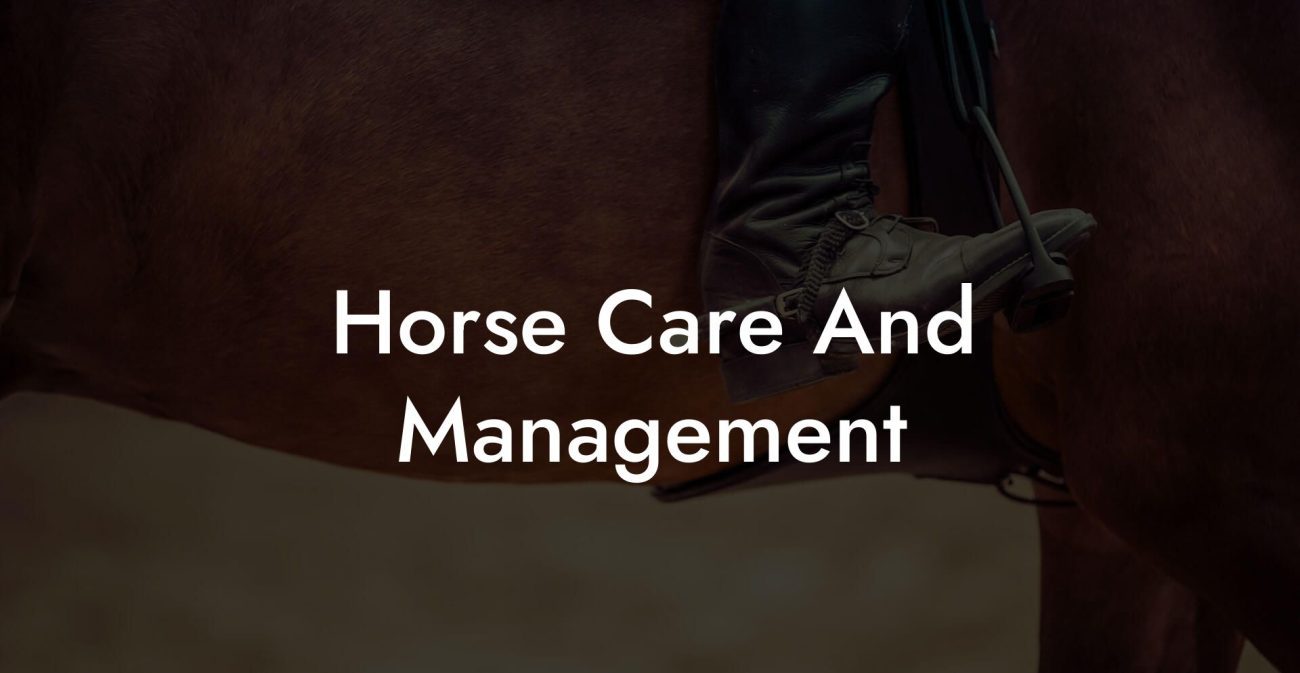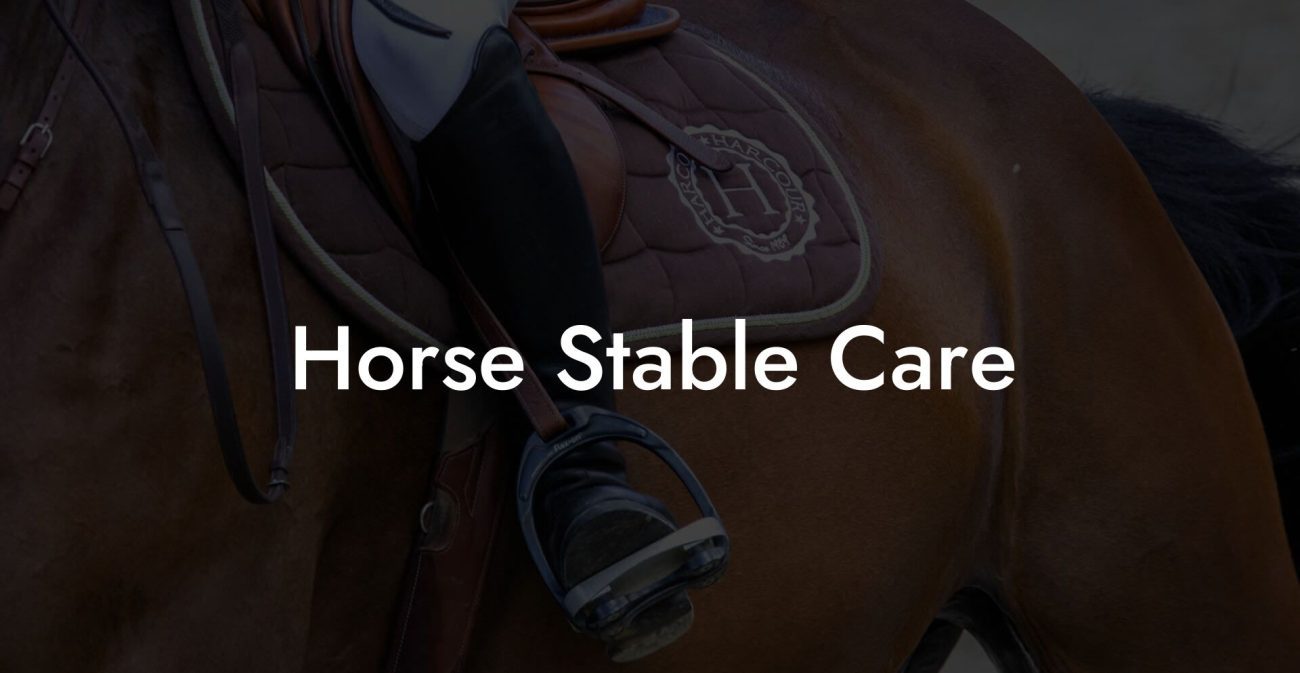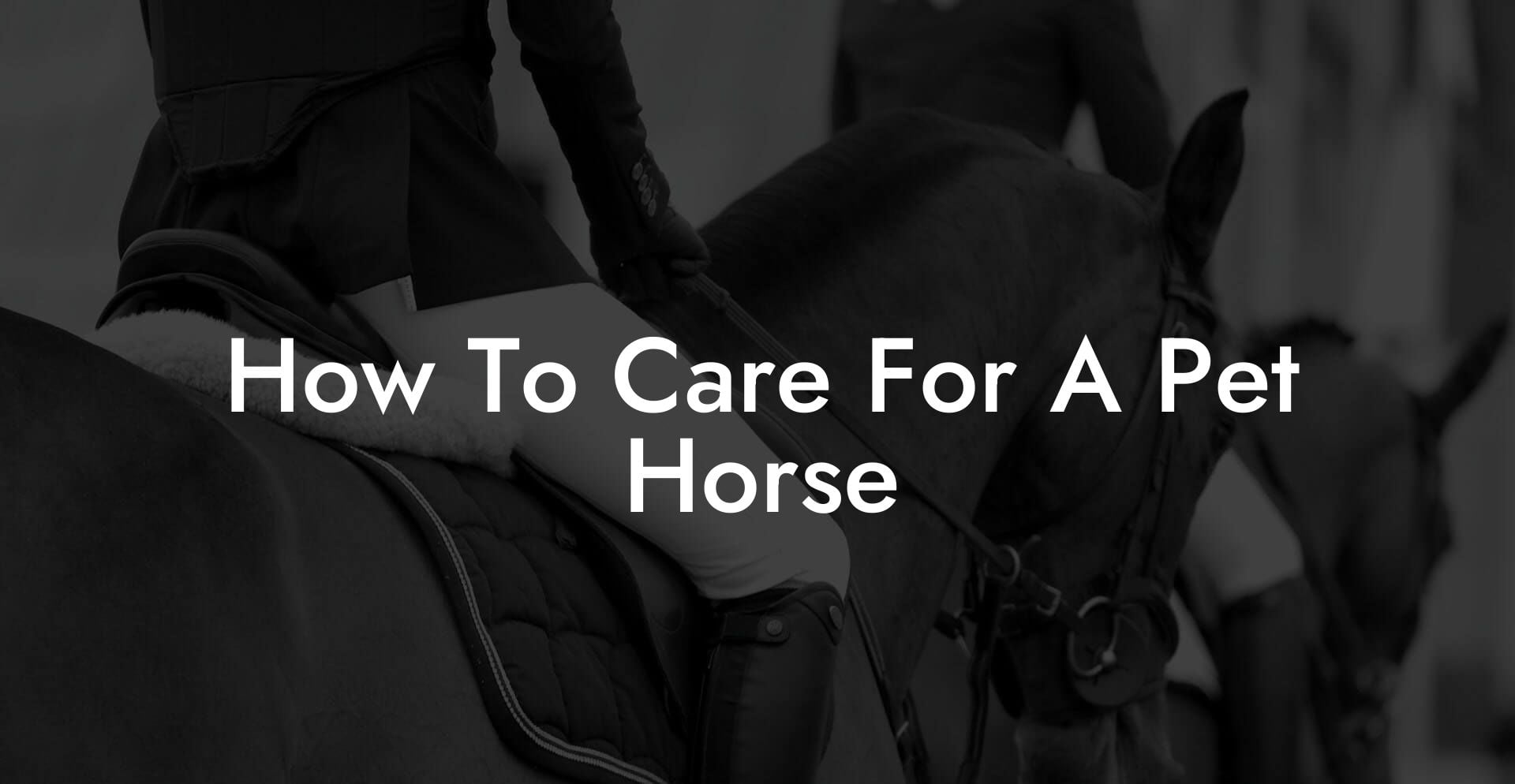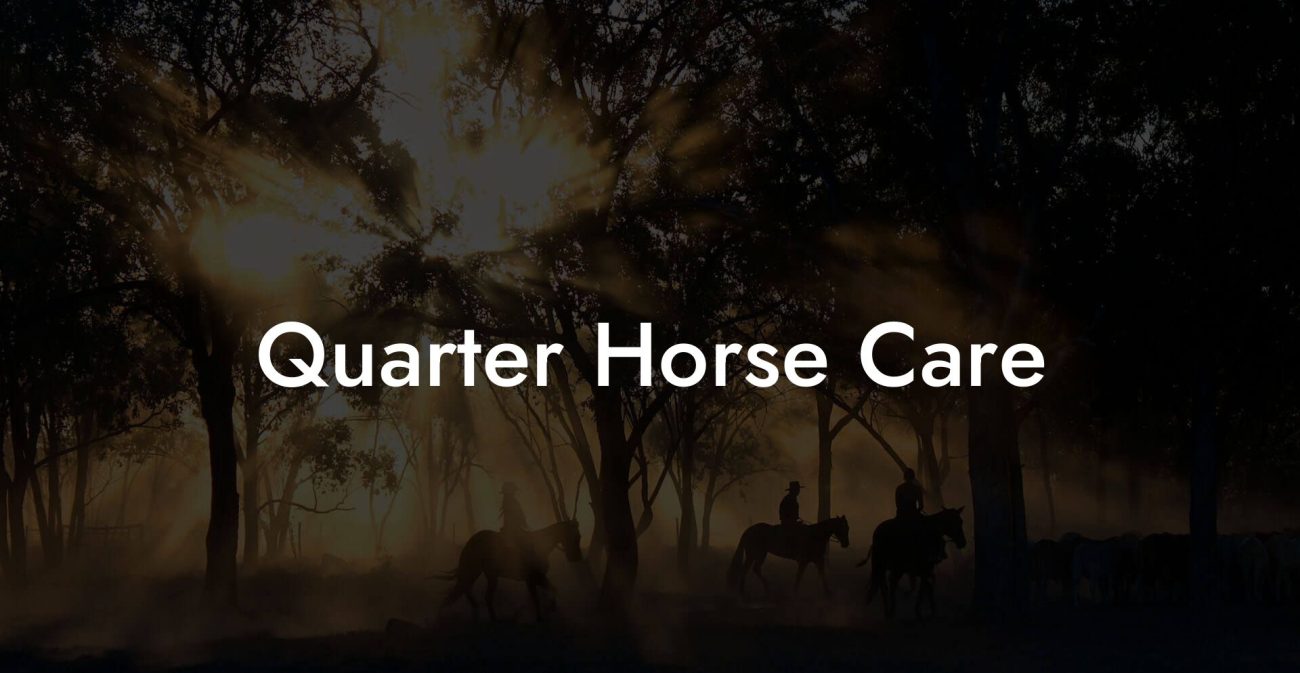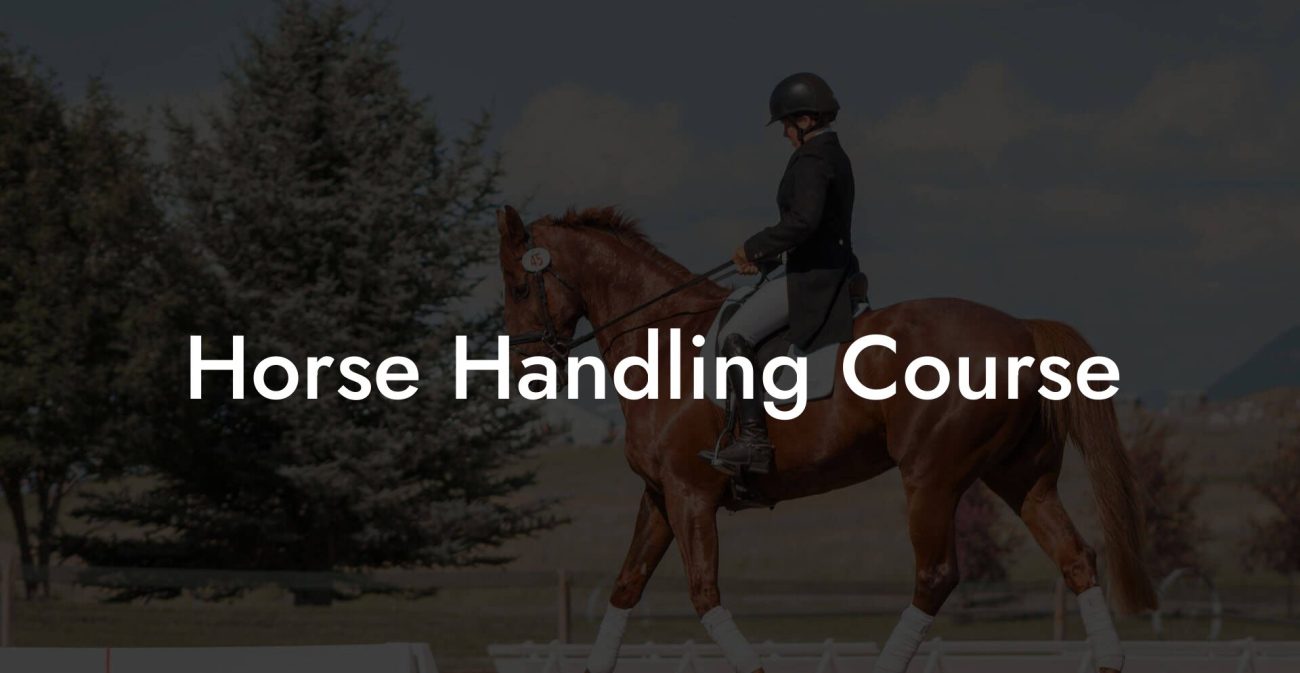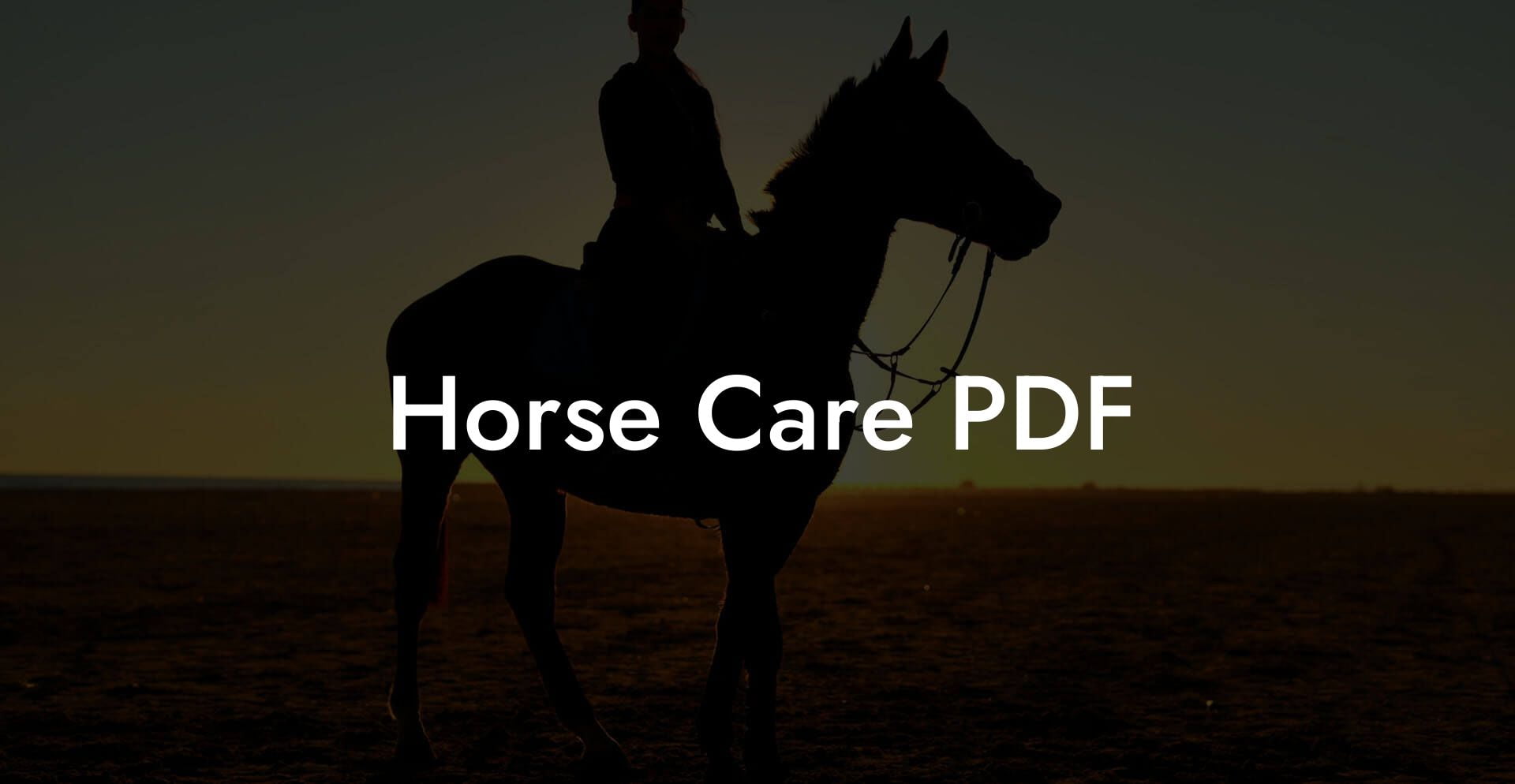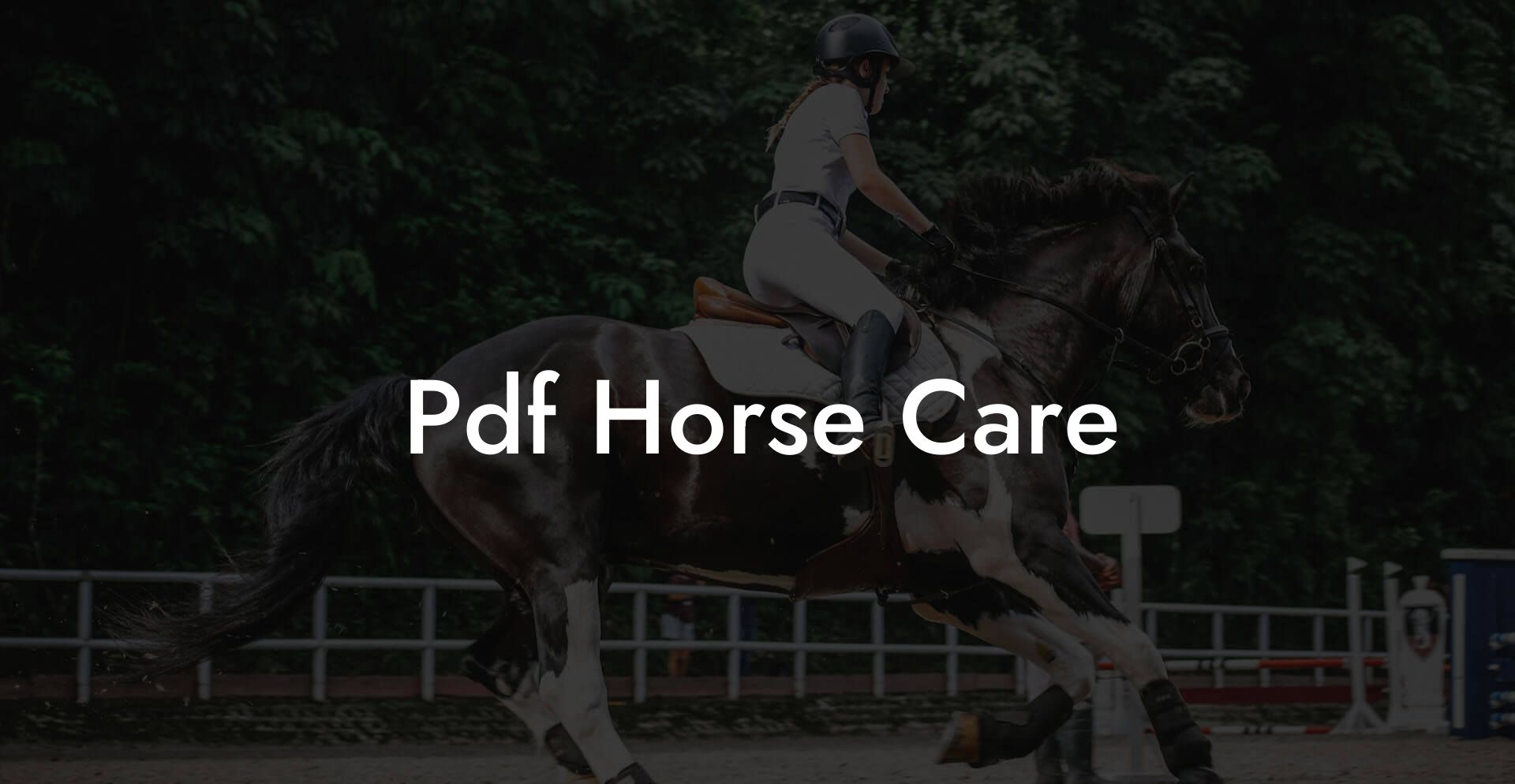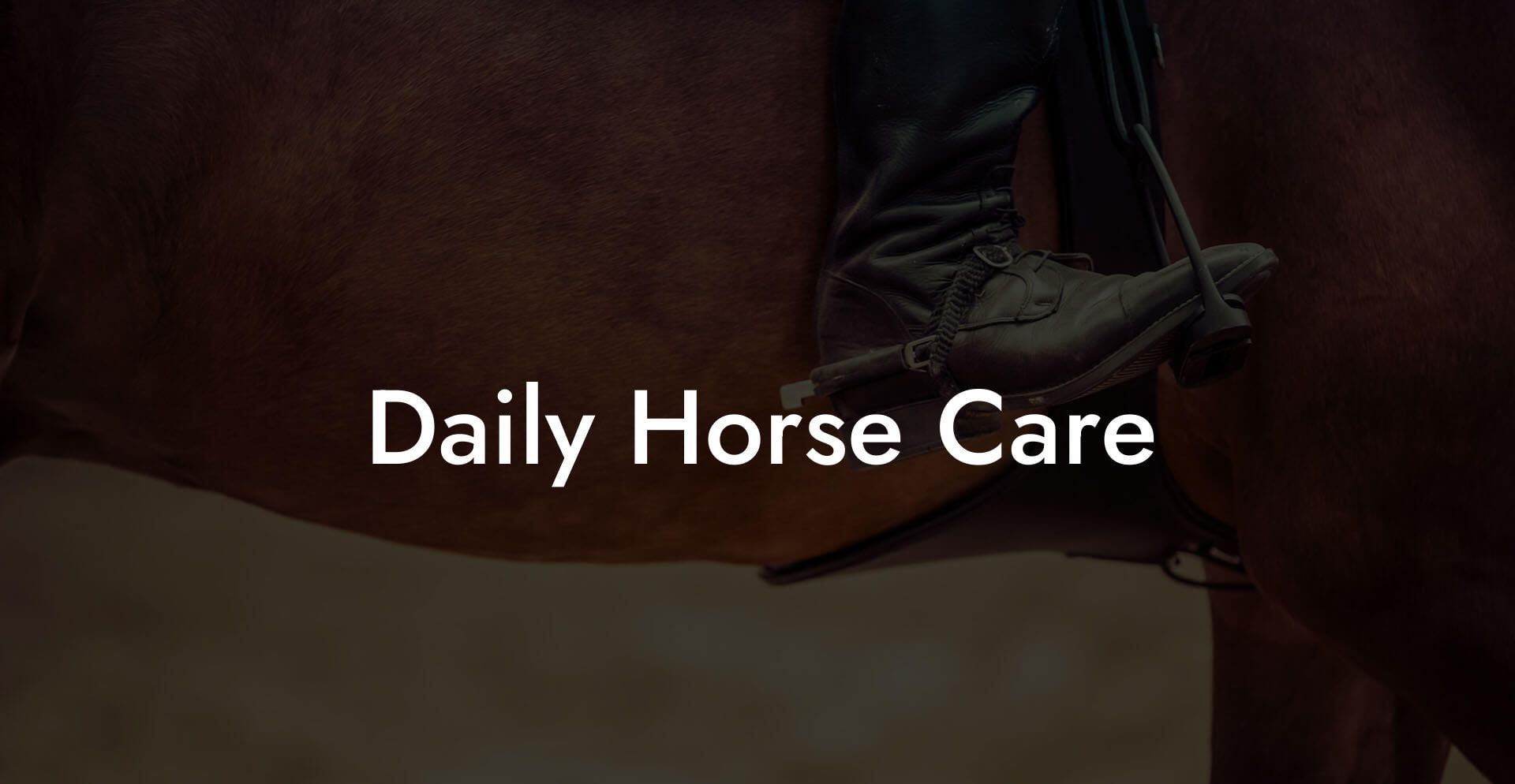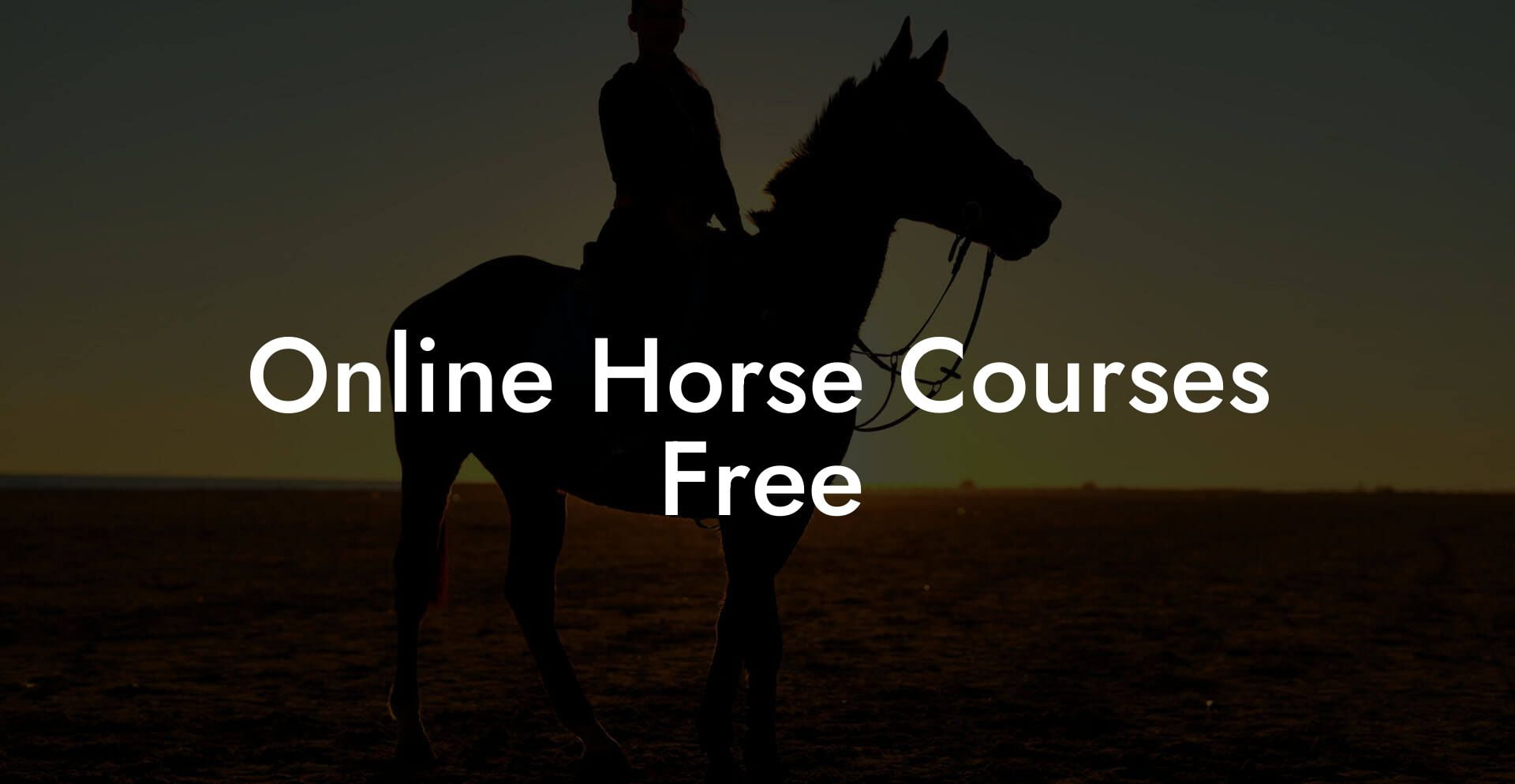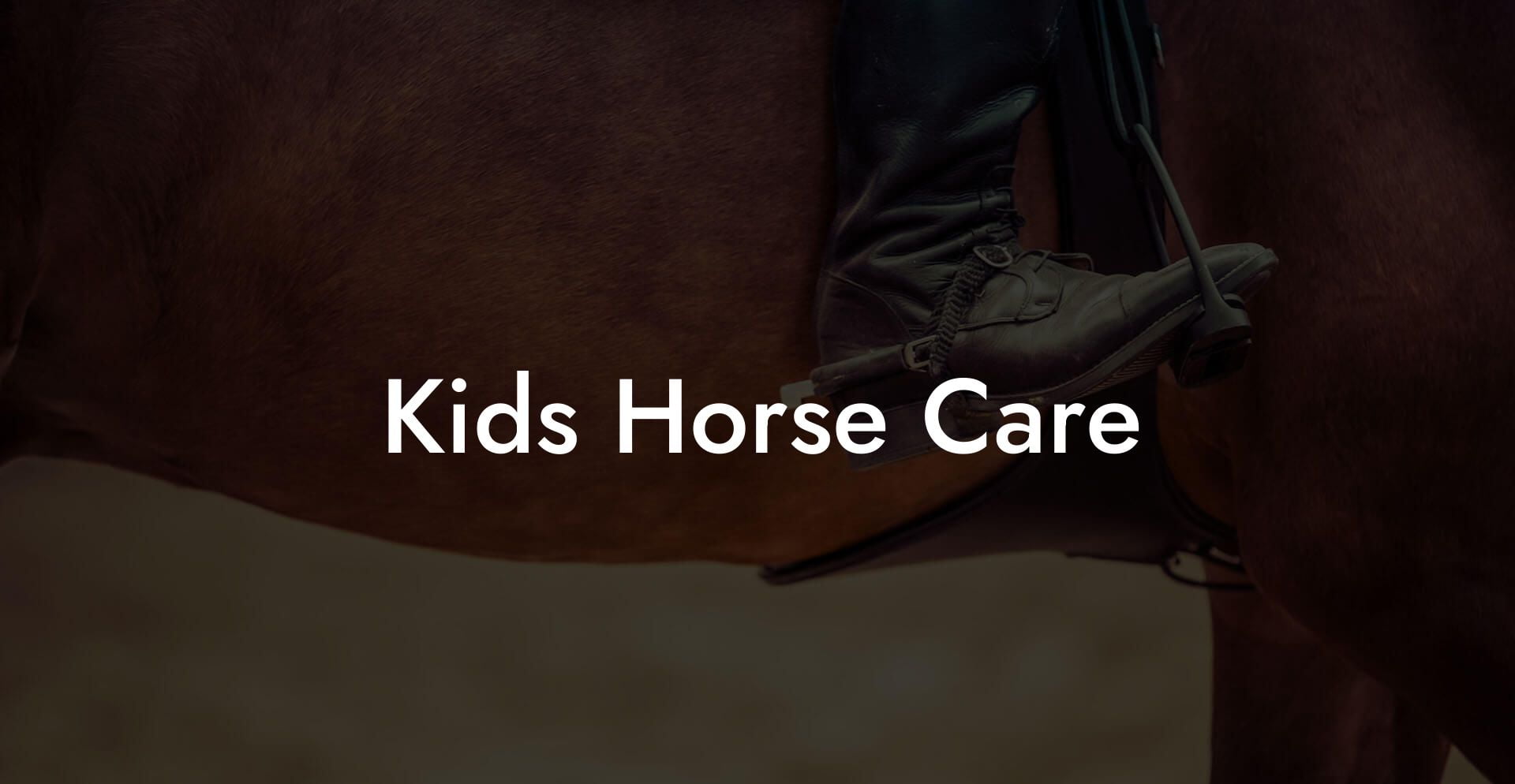Ever caught your horse savoring a snack that you wouldn’t dare serve on your dinner plate? You’re not alone. The intriguing, and sometimes hilarious, phenomenon of horses eating poop, technically known as coprophagia, might have you scratching your head. But beyond the initial shock lies a world of equine behavior, nutritional dynamics, and environmental factors that make this habit more complex than it seems. Let’s dive into an enlightening, no-holds-barred exploration of “Why Does My Horse Eat Poop?” and uncover the secrets behind this behavior, all wrapped in a vibe that’s equal parts scientific, humorous, and totally relatable for Gen-Z and millennials who are passionate about caring for their equine buddies.
Quick Links to Useful Sections
- Unpacking the Phenomenon: What Is Coprophagia in Horses?
- Decoding Equine Behavior: Why Horses Might Eat Poop
- Nutritional Deficiencies: Is Your Horse Lacking Essential Nutrients?
- Boredom and Environmental Stress: When Horses Seek Stimulation
- Instinct and Learned Behavior: Nature’s Recycling System
- Medical Conditions: When Poop-Eating Hints at health Issues
- The Science Behind Equine Digestion: How a Horse’s Gut Plays a Role
- Veterinary Insights: When Should You Worry About Coprophagia?
- Management and Prevention Strategies: How to Curb the Habit
- 1. Evaluate and Upgrade Diet
- 2. Enhance Environmental Enrichment
- 3. Maintain a Clean and Hygienic Pasture
- 4. Behavior Modification Techniques
- 5. Stress Reduction and Routine
- Practical Steps to Address the Behavior: Creating a Comprehensive Action Plan
- Step 1: Conduct a Thorough Assessment
- Step 2: Collaborate with Experts
- Step 3: Revamp the Living Environment
- Step 4: Implement Behavior Modification Strategies
- Step 5: Monitor Progress and Adjust Accordingly
- Addressing the Social and Emotional Needs of Your Horse
- Resources and Community Support: Your Next Steps
- Deep Dive into Equine Nutrition: Bridging Diet and Behavior
- Building a Holistic Care Plan for Your Horse
- Equine Behavior Anecdotes: Real Stories from the Field
- FAQ: Your Burning Questions About Why Horses Eat Poop
- Your Journey to Understanding and Caring for Your Equine Companion
Unpacking the Phenomenon: What Is Coprophagia in Horses?
In the animal kingdom, coprophagia might elicit raised eyebrows, giggles, or outright disbelief. Yet, for horses, this behavior can be surprisingly common. Coprophagia, which may sound like a term pulled from a sci‑fi movie, is simply the consumption of feces. In the wild, many species engage in this act as a survival strategy, a way to extract more nutrients, or simply as a means of recycling essential gut flora. Horses are no exception, though their rationale might differ from that of smaller, less majestic mammals.
As a horse owner, understanding this behavior is key to ensuring your equine companion remains healthy and happy. While it might be eye‑watering at first glance, there can be logical reasons behind this sometimes peculiar habit. In this comprehensive guide, we’ll explore the behavioral, nutritional, medical, and environmental angles to help you determine whether your horse’s peculiar taste is a sign of something deeper or just a quirky quirk of nature.
Decoding Equine Behavior: Why Horses Might Eat Poop
Horses are fascinating creatures with complex digestive systems and intricate social behaviors. When it comes to poop-eating, several factors can be at play. By exploring each potential cause, we can gain a better understanding of what your horse might be communicating through this behavior.
Nutritional Deficiencies: Is Your Horse Lacking Essential Nutrients?
One of the primary reasons horses might eat poop is linked to nutritional deficiency. Horses have evolved to extract every bit of nutritional value from their food. If there’s a deficiency, whether it’s lacking fiber, protein, vitamins, or even specific minerals like sodium, your horse might instinctively turn to its own manure as a supplementary food source. The poop may contain residual nutrients that, if re-ingested, could help balance its diet.
In some cases, the behavior might indicate that your horse’s feed isn’t fully satisfying its dietary requirements. It’s a natural “cheeky” attempt to catch up on what might be missing. Consider having your equine nutrition evaluated by a veterinarian or an equine nutritionist to ensure the diet is balanced and meets your horse’s needs.
Boredom and Environmental Stress: When Horses Seek Stimulation
Horses are intelligent, social animals that thrive on routine and interaction. In environments where they might be left isolated or confined for extended periods, boredom can set in, leading to unusual habits, including poop-eating. It’s not a “spoonful of sugar” situation; rather, your horse might simply be trying to alleviate the monotony of a lack of stimulation.
Enriched environments, varied exercise routines, and consistent social interactions can sometimes curb this behavior. When horses have plenty to do and friends to mingle with, they’re less likely to develop attention-seeking or self-soothing behaviors that include rummaging through their own droppings.
Instinct and Learned Behavior: Nature’s Recycling System
Believe it or not, some of a horse’s ancestors might have relied on a similar practice as a survival mechanism. In the wild, the reingestion of feces can help in re-establishing beneficial gut flora after illnesses or changes in diet. Additionally, young foals might mimic this behavior naturally as they observe older horses, making it a learned behavior that continues into adulthood if not properly managed.
This instinctual behavior is not unique to horses; other animals, including rabbits and even some primates, engage in similar practices. If your horse picked up the habit early in life, it might just be continuing a pattern it learned in its formative years.
Medical Conditions: When Poop-Eating Hints at health Issues
Not all cases of coprophagia are benign. In some instances, frequent poop-eating may be linked to underlying medical conditions. Gastrointestinal issues, parasites, or malabsorption problems can trigger a behavior where a horse seeks out additional nutrients from its feces. If you notice a significant increase in this behavior accompanied by other symptoms, such as weight loss, digestive upset, or behavioral changes, it’s time to consult your veterinarian for a comprehensive checkup.
While it might be tempting to laugh off this behavior as just another quirky equine trait, it’s essential to ensure that your horse isn’t signaling a more serious problem. A quick health assessment could nip any potential issues in the bud, helping maintain your horse’s overall well-being.
The Science Behind Equine Digestion: How a Horse’s Gut Plays a Role
To really grasp why your horse might be eating poop, it’s important to appreciate the marvel that is the equine digestive system. Unlike ruminants such as cows, horses are non‑ruminant herbivores with a unique fermentation process in their hindgut. This allows them to extract nutrients from fibrous plant material that many other animals simply can’t break down efficiently.
The horse’s digestive journey starts in the mouth, where the process of chewing and saliva production begins the breakdown of large food particles. Once the food makes its way down the esophagus and into the stomach, acids further break down the feed. But the real magic happens in the cecum and colon, where billions of beneficial microbes work tirelessly to ferment fiber, releasing volatile fatty acids and other nutrients.
Sometimes, if the balance of these microbes is off or if the horse isn’t absorbing enough from its diet, trying to reprocess the feces might represent an instinctive attempt to recapture lost nutrients. This behavior, while seemingly odd to us, is rooted deeply in the horse’s evolutionary drive to ensure it gets every ounce of sustenance available.
Moreover, fluctuations in the gut microbiome can occur due to stress, antibiotic treatments, or dietary changes, potentially prompting the horse to revert to old, instinctual behaviors like coprophagia. Recognizing the intricate links between diet, gut health, and behavior is key to understanding, and managing, this phenomenon.
Veterinary Insights: When Should You Worry About Coprophagia?
It’s important to note that while poop-eating might be shocking to observe, it isn’t necessarily a red flag in every instance. However, there are times when this behavior should prompt a deeper look into your horse’s health. Local veterinarians provide a wealth of knowledge from clinical experiences, and their input can be invaluable.
Consider scheduling a veterinary consultation if you notice any of the following:
- An abrupt increase in the frequency of poop-eating behavior.
- Signs of gastrointestinal distress, such as colic, diarrhea, or a noticeable change in manure consistency.
- A decline in overall body condition or weight loss.
- Behavioral changes that indicate discomfort or chronic stress.
A veterinarian might run a series of tests, including blood panels, fecal examinations, and digestive assessments, to rule out issues like parasitism or malabsorption. In some cases, the behavior might be a secondary issue stemming from an unbalanced diet or neglected mental stimulation.
Ultimately, early intervention and a collaborative approach with your equine health professional can make all the difference, ensuring that your horse’s digestive system remains in peak condition and that any underlying issues are addressed promptly.
Management and Prevention Strategies: How to Curb the Habit
So, your horse is indulging a bit too much in its own droppings, what can you do about it? While the behavior can be instinctual and seemingly out of our control, there are several practical steps you can take to manage and potentially prevent coprophagia. From environmental adjustments to nutritional tweaks, here’s a detailed look at effective strategies.
1. Evaluate and Upgrade Diet
A robust, balanced diet is the cornerstone of equine health. If you suspect nutritional deficiencies are at the root of the behavior, start by having your feed regimen evaluated by an equine nutritionist or veterinarian. Ensure that your horse’s diet is rich in fiber and includes all essential vitamins and minerals. In some cases, simply adjusting the ratio of roughage to concentrate, or adding a supplement, can deter your horse from searching for extra nutrients in its manure.
Be on the lookout for quality forage and consider testing your hay for nutritional content. The right balance not only addresses deficiency issues but also improves overall digestion, which might reduce the appeal of fecal matter as an additional nutrient source.
2. Enhance Environmental Enrichment
A bored horse is more likely to engage in undesirable behaviors. Enrich your horse’s environment by introducing new toys, safe forage puzzles, and ample turnout time. Social interaction with other horses is equally important. If your horse feels isolated or under-stimulated, it might turn to unusual habits simply to pass the time.
Rotating access to different paddocks, providing varied physical challenges, or even rearranging the barn layout can stimulate your horse’s curiosity and decrease the likelihood of boredom-induced coprophagia.
3. Maintain a Clean and Hygienic Pasture
Keeping your horse’s living area clean can indirectly reduce the opportunity for poop-eating. Regularly removing manure from barns, pastures, and stalls not only mitigates health risks but also eliminates the items that might trigger the behavior. Consider employing a scheduled cleaning routine that minimizes the accumulation of dung, thereby reducing your horse’s temptation.
4. Behavior Modification Techniques
Just like training any other aspect of behavior, addressing coprophagia in horses often requires patience and consistency. Positive reinforcement, such as treats, praise, or additional care, when your horse exhibits desirable behaviors can help shift its focus away from manure. Some owners have reported success using redirection techniques when they catch their horse in the act. A gentle but firm “no” combined with an alternative activity can gradually teach your horse that manure isn’t an acceptable delicacy.
5. Stress Reduction and Routine
Stress is an often-overlooked contributor to behavioral issues in horses. Establish a predictable routine, and try to minimize abrupt changes in the environment. Whether it’s ensuring that feeding times remain consistent or incorporating daily exercise sessions, a structured schedule can alleviate the anxiety that might be prompting your horse to eat poop.
Additionally, consider incorporating relaxation techniques into your routine, like slow, deliberate grooming sessions or even playing calming music in the stable, to help your horse feel more at ease.
Practical Steps to Address the Behavior: Creating a Comprehensive Action Plan
Tackling your horse’s poop-eating habit is all about creating an action plan that’s as unique as your steed. Integrating veterinary advice, nutritional adjustments, and behavior management into one cohesive strategy can help you make gradual, lasting changes.
Step 1: Conduct a Thorough Assessment
Begin by closely observing your horse’s daily activities, noting any patterns or triggers that coincide with periods of coprophagia. A detailed log that includes feeding times, environmental conditions, and behavioral cues can offer insights into whether boredom, nutritional deficits, or health issues are at play.
Step 2: Collaborate with Experts
Reach out to veterinary professionals and equine nutrition experts to review your findings. Their objective assessment can help confirm or rule out medical conditions or dietary imbalances. With their guidance, you can modify your horse’s diet or introduce supplements that address any specific deficiencies.
Step 3: Revamp the Living Environment
Use your observations to make targeted changes in your horse’s surroundings. Increase the time your horse spends outdoors, diversify its exercise regimen, and enhance social interactions with fellow equines. Small environmental enrichments can lead to significant improvements, a more satisfied horse is far less likely to indulge in undesirable behaviors.
Step 4: Implement Behavior Modification Strategies
Consistency is your best friend when retraining your horse. Introduce redirection techniques gradually. For example, if you see your horse nearing a manure pile, calmly intervene with a favorite treat or a playful nudge toward a more engaging activity. Over time, your horse will begin to associate the alternative behavior with positive reinforcement.
Step 5: Monitor Progress and Adjust Accordingly
Change doesn’t happen overnight. Keep a detailed journal of your horse’s progress and any shifts in behavior. Regularly check in with your equine health professionals to evaluate whether your strategies are working or if adjustments are needed. With time, consistency, and care, you can help steer your horse toward healthier habits.
Remember, what works best for one horse might not yield the same results for another. Flexibility and ongoing assessment are essential to finding the right balance for your pet’s unique needs.
Addressing the Social and Emotional Needs of Your Horse
Horses are social animals with rich emotional lives. Just like humans, they thrive when they feel understood and cared for. A horse that experiences anxiety or loneliness might seek comfort through repetitive or self-soothing behaviors, including poop-eating. By fostering a nurturing, engaging environment that caters to both physical and emotional needs, you can make a world of difference.
Spend quality time with your horse outside the confines of routine feeding and exercise. Gentle grooming, relaxed interaction, and simply being present can do wonders for its emotional well-being. Creating a calm and supportive atmosphere helps lower stress levels, which in turn may reduce the incidence of coprophagia.
Additionally, establishing a herd dynamic, if possible, by allowing safe interactions with other horses can provide the social stimulation that ward off boredom and anxiety. A well-socialized horse is less inclined to engage in oddball behaviors and more likely to display a balanced demeanor.
Resources and Community Support: Your Next Steps
When it comes to managing your horse’s behavior, you don’t have to go it alone. The equine community is filled with experienced owners, veterinarians, and enthusiasts who have navigated the quirky world of horse care. Here are some top resources and avenues for support:
- Online Forums and Social Media Groups: Platforms like The Horse Forum, Equine World UK, and various Facebook groups provide excellent spaces to ask questions, share experiences, and learn from others who have faced similar challenges.
- Equine Nutritionists: Consulting with a specialized equine nutritionist can offer personalized insights into your horse’s dietary regimen and uncover hidden deficiencies that might trigger coprophagia.
- Veterinary Consultations: Regular check-ups with your equine veterinarian can help monitor your horse’s health and ensure that any behavioral changes are addressed early.
- Behavioral Specialists: In cases where the behavior is deeply ingrained or linked to stress, seeking help from an equine behavioral specialist might be a worthwhile option.
- Local Equine Events and Workshops: Attending clinics and workshops can not only provide direct knowledge but also connect you with like‑minded individuals who share your passion for horse care.
Building a strong, collaborative network can empower you with the latest research, proven techniques, and practical tips to address any issues with your horse. These resources not only enrich your knowledge but also remind you that you’re part of a larger community that’s passionate about the well-being of these magnificent animals.
Deep Dive into Equine Nutrition: Bridging Diet and Behavior
Nutrition plays a pivotal role in any behavioral puzzle, and the same goes for equine coprophagia. Delving into your horse’s diet can unveil significant clues about why it might be seeking extra nutrients from an unlikely source. Poor quality hay, an imbalance of minerals, or even limited access to fresh forage may contribute to the behavior.
Modern equine nutrition emphasizes the importance of consistency and balance. For instance, horses require an optimal mix of roughage, concentrates, and clean water to maintain a healthy digestive system. Introducing a variety of nutrient-dense feeds, and ensuring the hay is free from mold or contaminants, can dramatically influence overall gut health. When the digestive system functions optimally, the appeal of fecal matter, for some inexplicable reason, is greatly diminished.
An increasing body of research illustrates that certain trace minerals and vitamins might be lacking in commercially available feed formulas. If your horse is compensating by eating its own poop, it might be trying to recoup those missing elements. In response, tailored feed strategies that focus on nutrient density and diversity can provide a long‑term solution that benefits not only behavior but general health.
Building a Holistic Care Plan for Your Horse
Developing a holistic approach to your horse’s health means looking beyond just the physical aspect of feeding. It involves aligning the diet, environment, exercise, and mental well‑being into a cohesive plan that promotes lasting benefits. Consider the following components when formulating your approach:
- Dietary Overhaul: Work with professionals to craft a nutrient‑rich, balanced diet tailored specifically to your horse’s age, work level, and health status.
- Grooming and Bonding Sessions: Regular grooming can serve as a calming ritual, strengthen your bond, and reduce stress, which might indirectly reduce the urge to engage in destructive behaviors like coprophagia.
- Environmental Enrichment: Ensure ample turnout time, fresh air, and varied stimuli to keep your horse mentally and physically active.
- Regular Veterinary Monitoring: Preventative care can catch potential digestive or metabolic issues early, offering an extra layer of security for your horse’s well‑being.
- Behavioral Training: Integrate positive reinforcement and behavior modification techniques consistently, helping your horse develop acceptable habits over time.
By embracing a holistic care plan, you’re not only addressing the symptoms of coprophagia but also nurturing your horse’s overall quality of life. This comprehensive approach fosters a resilient, healthier animal that thrives both physically and mentally.
Remember, every horse is unique. What works for one might not work for another, so flexibility and continuous learning are key. With determination and the right resources, you can create an environment in which your horse feels both well‐nourished and emotionally fulfilled.
Equine Behavior Anecdotes: Real Stories from the Field
Sometimes, the best insights come from those who have been there before. Across the globe, horse owners have shared their candid stories about dealing with coprophagia, and the results have been as enlightening as they are entertaining.
Consider the story of Bella, a spirited mare known for her insatiable curiosity. When her owner first noticed Bella scavenging through her stall, the initial reaction was shock and a dash of amusement. However, upon closer examination, it appeared Bella’s behavior was closely linked to an incomplete diet lacking certain minerals. With a simple adjustment in her feed and more frequent stall cleaning, Bella’s unconventional snack habit gradually disappeared.
Then there’s Max, a charming gelding who developed a reputation for being a “man of fine taste”, at least when it came to his choice in bedding material. His owner discovered that Max’s behavior was stress‑induced due to prolonged isolation. By increasing daily interaction and introducing a variety of enrichment toys in the pastures, Max’s unusual habit soon gave way to more conventional grazing behaviors and a much happier disposition.
These real-life anecdotes remind us that while coprophagia may provoke initial shock, the underlying drivers are often manageable with the right blend of nutrition, attention, and environmental care. Every equine tale adds another layer of understanding to this fascinating behavior, proving that even the quirkiest habits can be addressed with thoughtful intervention.
FAQ: Your Burning Questions About Why Horses Eat Poop
Below are some of the most frequently asked questions about equine coprophagia, along with answers that aim to clear up confusion and offer actionable insights.
1. Is it normal for horses to eat their own poop?
While it might seem bizarre, a certain level of coprophagia can occur in horses as a natural behavior, often driven by nutritional deficiencies, boredom, or learned habits. Nonetheless, if the behavior intensifies or is accompanied by other concerning symptoms, it might be worth a closer look.
2. Could my horse be lacking specific nutrients?
Yes, nutritional imbalances, especially deficiencies in fiber, certain trace minerals, or vitamins, might trigger your horse to seek out additional nutrients in its manure.
3. What role does boredom play in this behavior?
Boredom and environmental stress are key contributors. Horses that are under-stimulated or isolated often develop repetitive behaviors, including coprophagia, as a means of coping.
4. When should I be concerned about my horse’s poop-eating habit?
If you notice a sudden or significant increase in this behavior, or if it is accompanied by signs of illness such as weight loss, diarrhea, or colic, it’s important to consult with a veterinarian to rule out underlying health conditions.
5. How can I prevent this behavior?
Prevention strategies include ensuring a balanced, nutrient-rich diet, providing ample environmental enrichment, maintaining a clean living area, and employing positive behavior modification techniques.
6. Is coprophagia dangerous for horses?
In most cases, occasional ingestion of feces is not dangerous, but it can lead to health risks, such as the ingestion of parasites or bacteria, if the behavior becomes chronic or the manure is contaminated.
7. Can changing my horse’s diet help stop it?
Absolutely. Sometimes simply adjusting the diet to ensure proper nutrient intake is enough to curb the behavior when it is linked to nutritional deficiencies.
Your Journey to Understanding and Caring for Your Equine Companion
The curious case of horses eating poop isn’t just a quirky behavior, it’s a window into the intricate world of equine biology, nutrition, and social dynamics. By approaching this topic with humor, empathy, and a commitment to understanding the underlying causes, you’re empowering yourself to create a healthier, more enriched life for your horse.
Every element, from assessing nutritional needs to modifying environmental factors and engaging in behavior‐shaping techniques, plays a critical role in crafting a solution that’s uniquely tailored to your horse’s needs. The journey might be complex, but each step brings you closer to unlocking the mystery behind your horse’s poop-eating habit.
Embrace this process as an opportunity to deepen your connection with your equine friend. With the right blend of professional guidance, diligent care, and community support, you can transform this puzzling behavior into a manageable part of your overall care strategy. After all, every challenge is just another chance to show your love and commitment to your horse’s well‑being.
From exploring the science behind equine digestion to creating an enriched, stress‑free environment, you’re equipped with a comprehensive playbook for success. Your proactive approach not only enhances the quality of your horse’s life but also reaffirms the incredible bond between caretaker and companion.
So, whether you’re tweaking the diet, ramping up the fun in the pasture, or simply seeking advice from like‑minded equine enthusiasts, remember that knowledge is your superpower. Step forward confidently on your journey to understanding and caring for the wonderful, sometimes peculiar, yet always captivating world of your horse.

